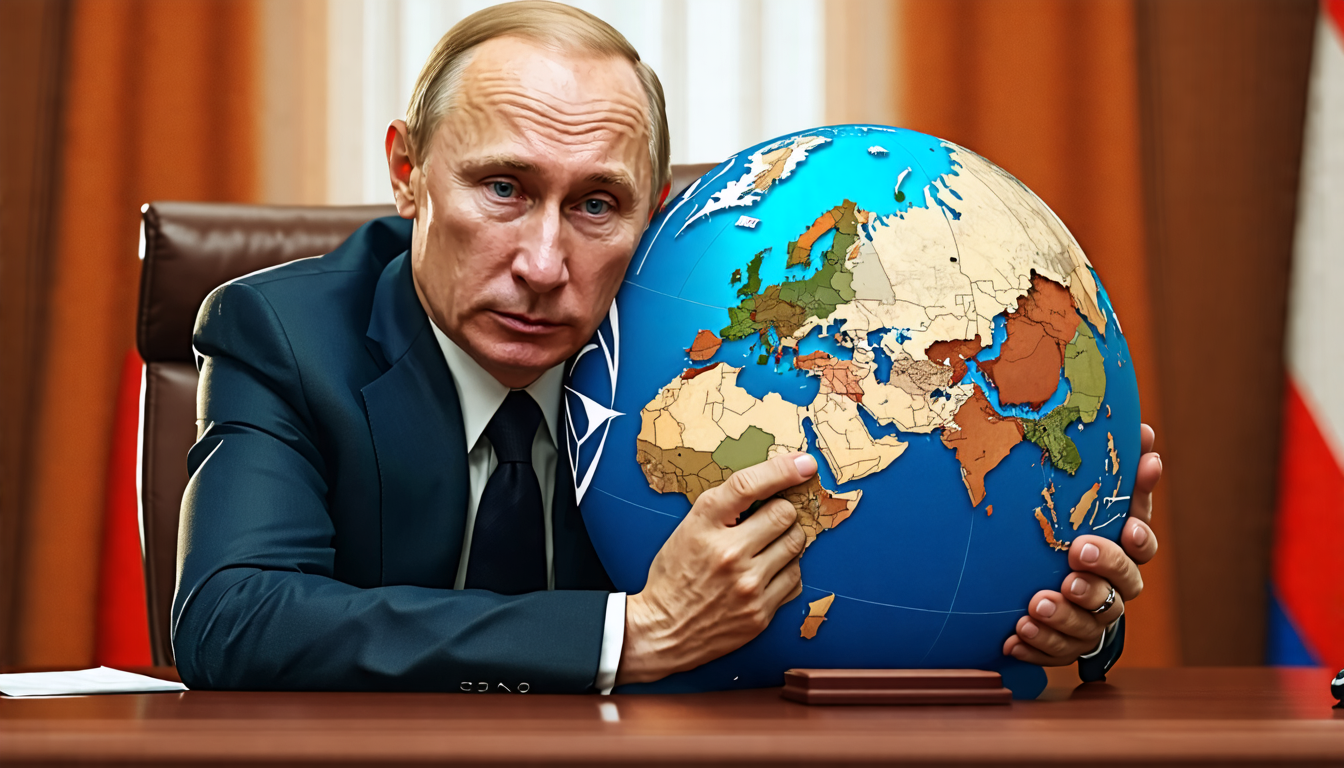Russia, a nation renowned for its military prowess and unparalleled ability to invade neighbors, has now found itself in a peculiar position: applying to join NATO. Yes, you read that correctly. As Ukraine’s counteroffensive continues to gain ground within Russian borders, the Kremlin has decided that the best defense against their former Soviet compatriot is, ironically, the Western military alliance they’ve long vilified.
Recent weeks have seen Ukraine make significant advances into Russian territory, marking one of the most dramatic shifts in the conflict since it began. Ukrainian forces have successfully launched incursions into Russia’s Kursk and Belgorod regions, taking control of several towns and pushing deeper into Russian territory. This counteroffensive, which now has Kyiv’s forces holding approximately 1,000 square kilometers of Russian land, has sent shockwaves through the Kremlin.
The situation has grown so dire that Russian authorities declared a “federal-level” emergency in Kursk, with missile strikes and drone attacks becoming almost routine. Belgorod, another border region, saw the evacuation of tens of thousands of residents as Ukrainian forces continued their advance. Local governors are scrambling to respond, while President Putin appears increasingly isolated, his bravado crumbling under the relentless pressure from Ukraine.
In a desperate bid to preserve whatever dignity remains, Russian officials reportedly sent an application to NATO, seeking membership to protect themselves against the “Ukrainian aggression” that has embarrassed them on the world stage. The irony of seeking protection from an alliance they’ve spent decades demonizing is apparently lost on the Kremlin, as is the fact that NATO’s primary purpose is to protect member states from, well, countries like Russia.
Meanwhile, the Ukrainian advance continues to be a source of morale for Kyiv and its Western allies. NATO, for its part, is likely enjoying this unexpected turn of events, as Ukrainian forces use the Kremlin’s own playbook against it—seizing territory, causing mass evacuations, and spreading panic across Russia’s border regions. The implications of Ukraine’s success are profound, not only for the war itself but for the broader geopolitical landscape.
As NATO mulls over Russia’s application (a request that’s surely being met with a mix of amusement and bewilderment), one can’t help but wonder: Will Putin be attending the next NATO summit as a guest of honor, or will he be left outside, watching as his former satellites cozy up to his sworn enemies? Either way, the Kremlin’s desperation marks a new low in a conflict that has already rewritten the rules of international warfare several times over.

